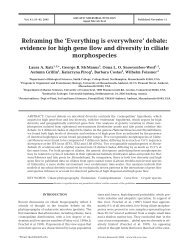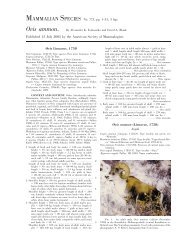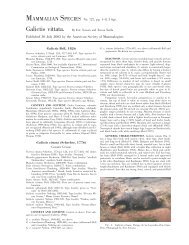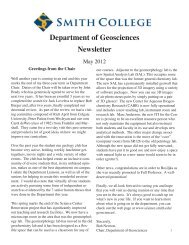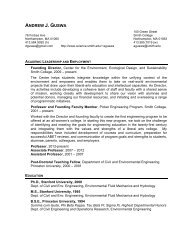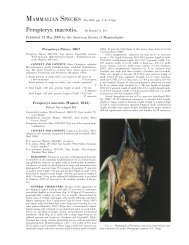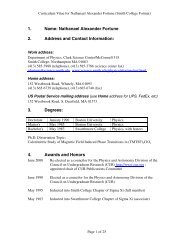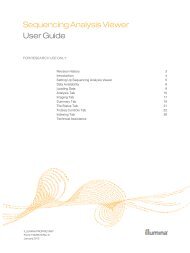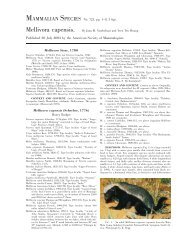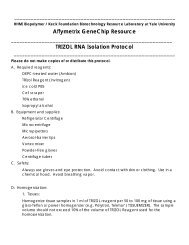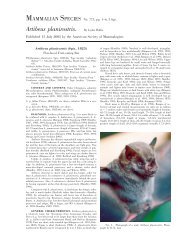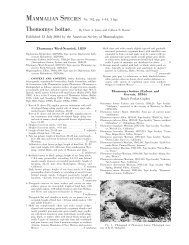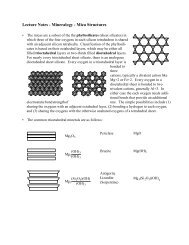Brugia Malayi - Clark Science Center - Smith College
Brugia Malayi - Clark Science Center - Smith College
Brugia Malayi - Clark Science Center - Smith College
Create successful ePaper yourself
Turn your PDF publications into a flip-book with our unique Google optimized e-Paper software.
Modeling and Analysis of Thermal Dynamics in Miniature PEM Fuel Cells<br />
Xinyi Liu<br />
A fuel cell is a device that converts the chemical energy of a fuel into electricity. Every fuel cell consists of a cathode, an anode<br />
and an electrolyte. The most commonly used fuel is hydrogen. When hydrogen reacts with oxygen, power is generated by the fuel<br />
cell. The type of fuel cell used in our lab is a miniature Polymer Electrolyte Membrane Fuel Cell (PEMFC), with a catalyst coated<br />
active area of 5cm 2 . Even though PEMFCs contain many advantages over other types of fuel cells, such as being lighter, more<br />
compact, and responsive to dynamic loads, temperature and water management remain technical barriers to successful commercial<br />
implementation.<br />
A control-oriented mathematical thermal model was developed and experimentally validated to predict the thermal<br />
performance of the miniature PEMFC, which operates with no humidification or reactant pre-treatment. After performing<br />
control volume analysis and applying an energy balance for the cell, the thermal model was constructed in Simulink and analyzed<br />
in MATLAB.<br />
The miniature PEMFC was operated on a test bench under changes in load, air mass flow rate, and cathode inlet temperature.<br />
With the experimental data obtained, the model was tuned to identify unknown parameter values, followed by an experimental<br />
validation for that model. The thermal dynamic response of the model was compared with the experimental. Our model<br />
accurately captures most of the changes in load and in air mass flow, but further modifications to the model still needs to be made.<br />
The SURF summer research introduced me to the field of fuel cell study and provided me with a rich summer experience.<br />
Under the guidance of my research advisor, I gained a deeper understanding of both fuel cell thermal-modeling techniques<br />
and how to carry out academic research. The work we did during the summer has been submitted as a conference paper to the<br />
ASME/IEEE American Controls Conference. With the knowledge built and techniques learned during the summer research,<br />
I will continue work on the thermal dynamics modeling of our fuel cell in my junior year as a Special Study. (Supported by the<br />
Schultz Foundation)<br />
Advisor: Denise McKahn<br />
2012<br />
112



